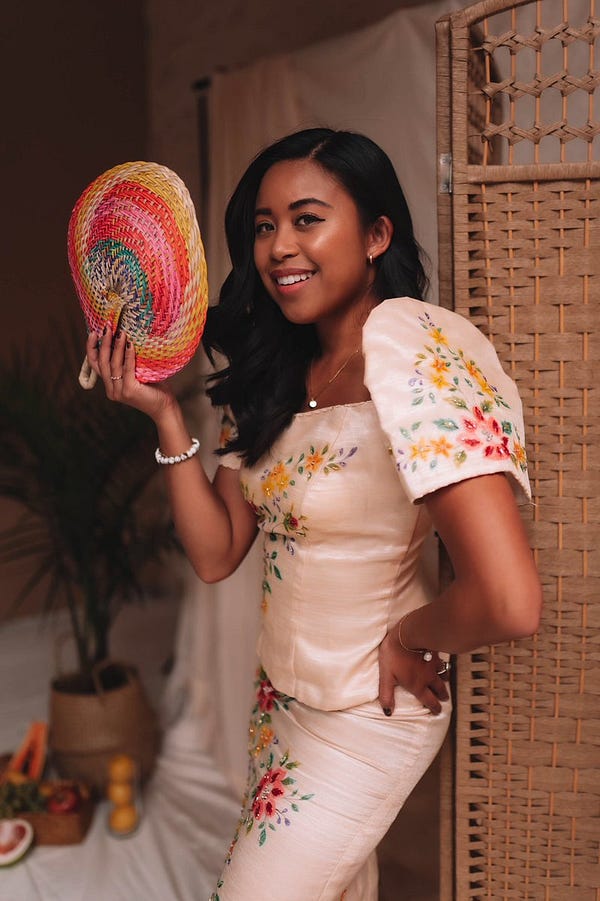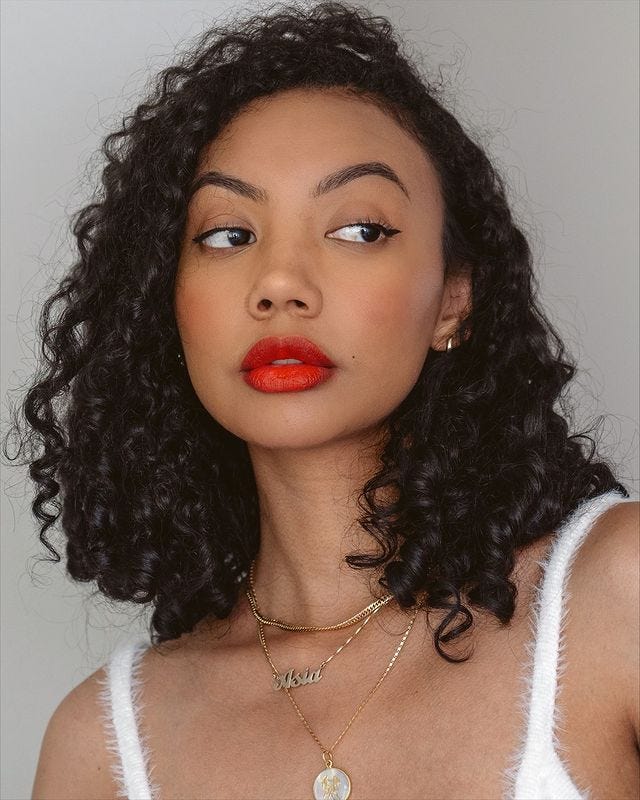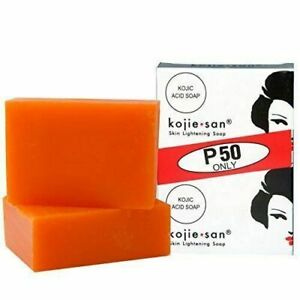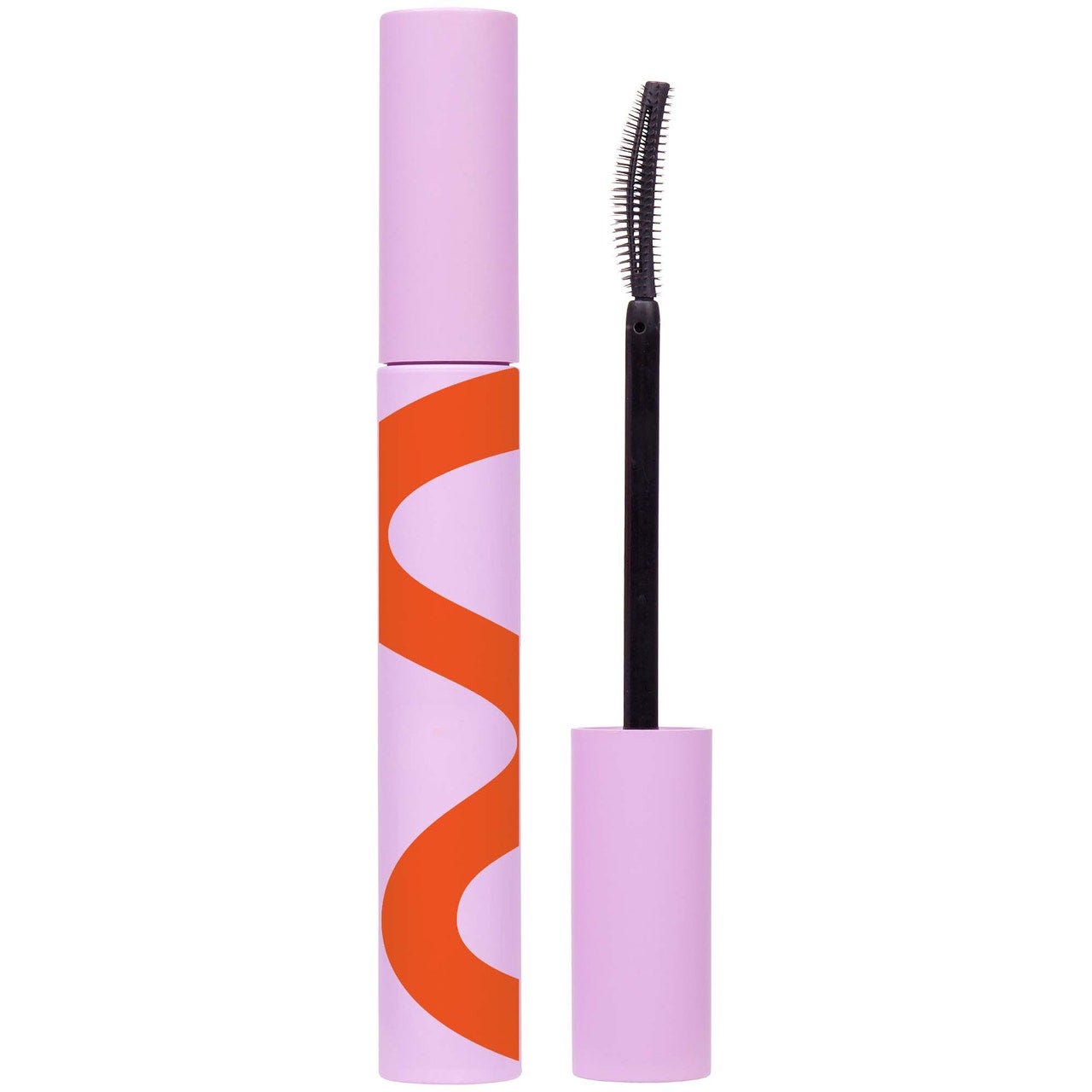A Conversation with Asia Jackson on Filipino Beauty Standards
Asia is the creator of #MagandangMorenx, a movement to challenge colorism.
Hello, readers!
When coming up with topics I wanted to cover for Pearl, I immediately recalled a conversation about Filipino beauty standards that I had with Asia Jackson during an event for Entrepinayship, an incredible community supporting Filipina entrepreneurs. If you don’t already follow Asia, start now. She’s a LA-based actress, activist, and content creator. When she’s not launching new ventures or hanging out on a Times Square billboard (casual!), she’s using her platform to embrace her Black and Filipino roots. Whether she’s highlighting her indigenous Igorot heritage, sharing a chicken inasal recipe, or doing an educational explainer on colorism, I’m “liking” and saving every post.
In 2016, Asia created the hashtag #MagandangMorenx (translates to “beautiful brown skin”) which started a viral movement to challenge colorism and Eurocentric beauty standards in Filipino communities. I actually came across #MagandangMorenx on Twitter when I worked at an online publication in 2017. I remember being so inspired by it and wanting to pitch a story, but feeling like it didn’t have a place amidst the coverage on beauty product launches, social media makeup trends, and celebrity interviews. I was still at a point of wanting to fit in to move up the corporate media ladder and that meant doing stories that get clicks. While there was definitely an effort to diversify beauty media at the time (this was right around when Fenty Beauty launched), I wasn’t in a place of owning my identity and finding it worthy to celebrate. Thankfully, I’ve come a long way.
Ahead, Asia and I talk about the influence of Filipino media on beauty standards, the value of knowing history to feel confident in yourself, and more about Asia’s experience launching #MagandangMorenx. While this conversation happened in 2020, I wanted to transcribe and re-share it because the topics we covered are still relevant today. I edited it down for clarity and length, but you can watch the full video here.
Asia Jackson: The first thing I wanna talk about is growing up Filipino as it relates to beauty standards. Are you second generation?
Kristina Rodulfo: My parents are immigrants and I was born and raised in Queens, New York. I'm quite “Americanized,” but I grew up very close to the culture in a very Filipino neighborhood, three blocks away from a Catholic church. Every other home was a Filipino household. So I grew up around the food, learning the traditions, the dances, the OPM songs on karaoke, and I had TFC [The Filipino Channel] on all the time in my house.
AJ: Since you were in a community of other Filipinos, and you felt really connected to the culture, what was it like growing up? How did growing up in a Filipino community in New York shape your definition of beauty?
KR: It was heavily shaped by a lot of the same ideals that my parents' generation would've grown up with. For example, nobody ever wanted to get a tan. I would see people walking around with umbrellas so that they don't have any sun exposure. I'm very tan and I would always hear Titas being like, Be careful–you don't want to get too dark, as if it was a bad thing. I really absorbed that.
I remember I visited the Philippines when I was a teenager, and my aunt gave me a six month supply of soap to whiten my skin. I was naive at the time, and I really believed that having lighter skin meant that you were more beautiful. That's also what I saw on TV, in the Filipino media. Every star, actress, or singer that you would see were light-skinned Filipinos. A lot of times, they had ambiguous features. They were half white, or half Chinese, or half something else. I'd never see someone who was full Filipino. I think what that translated to was a lot of internalized–I don't want to say hatred–but I think there was an aversion, rather, to the natural beauty that I was born with.
It took a lot of learning history and researching about colonialism and the impact that had in our country, and the way proximity to whiteness meant “beauty.” I believed the same things. It took a lot of awakening by meeting other Filipino people who were my age and exchanging stories. It took me a long time to appreciate and love our heritage and the way that it shows in our faces–whether it's a round nose or a round face like I have, or darker skin.
AJ: That's so interesting because a lot of the work that I do is specifically about skin color. Colorism. That's what the hashtag is about. But, what are your thoughts on “feature-ism”? We're talking about the nose. One time I saw a Filipino influencer who was on YouTube, and she was trying out this little gadget with plastic sticks that she put in her nose to make it taller. And I remember when I was in the Philippines, even though I was bullied for my skin color, one thing that I always got complimented on was my nose, because it’s tall and pointy. It's such an interesting multi-layered issue, I guess, because I was bullied for being dark, but then like my nose everyone liked it. Did you have any experience with being told that your specific features, like your nose, was considered not beautiful or that you needed to change it?
KR: Thankfully, I never experienced that directly. I grew up in one of the most diverse counties in the world. There was so much exposure to different types of beauty, especially as kids. I'm grateful because I was protected from feeling “othered” in that way. But, I will say that I remember hearing a lot of talk about noses. Cousins or Titas really loved this idea of a straight nose, or a sloped nose like yours, or one that has a prominent point to it, or a “tall” one. No one ever wanted to have a “flat” nose, which I guess would signify more indigenous features. Anyone that looked “mixed” was always revered. I never knew that was problematic, because I also grew up aspiring to those things, wishing I could get a nose job. It’s very deep rooted in the culture.
Anyone that looked “mixed” was always revered. I never knew that was problematic, because I also grew up aspiring to those things.
AJ: It's so interesting how specifically the media can influence the things that your family says to you, and how they can influence decisions that you want to make about your appearance. How else does the Filipino identity resonate with you?
KR: I'm so proud of being Filipino, but I think that the Filipino identity to me has evolved over time because I had a superficial understanding of what it meant. I used to think being Filipino and calling yourself that was enough. Understanding history and what our societies were like–matriarchal societies, our indigenous roots, the power and community that Filipino culture inherently has–made me realize the amazing bond that Filipino women have with each other. I think it goes back to our ancestors, and the communities that we had, and the power that there was in hospitality and wanting to share, give, and be selfless. This is also what I've personally experienced within my Filipino mother figures in my life, and I've always aspired to continue that.
AJ: At the beginning, you said you used to feel like calling yourself “Filipino” was enough as part of your identity. I have actually had a lot of conversations with a lot of Filipino Americans who had something similar to say, like, they thought that eating lumpia was enough. But then, they get to college. If they grew up in a predominantly white community, they get to meet other Filipinos, and they learn about their history. There's so much that you can learn about yourself just by learning about your history. So, I'm really glad that you brought that up. I always say: Know history, know self. No history, no self. So when you know your history, you have a really strong sense of identity. I love that.
KR: I totally stand by that. I think that it's something that makes you special. When I think about moments of difficulty or moments where I feel like I'm under pressure, I always think as recently as my mom and what she went through, her strength, and how I can carry that on. We have an amazing lineage.
AJ: I agree. Going back to the community that you grew up in, what messages did you get about beauty standards or like messages about beauty inside the home or in your community?
KR: Specific messages that I would get were all related to the idols at the time. It’s very pop culture influenced. Whoever we were seeing on TV, whether it’s Heart Evangelista, or Anne Curtis, or those mega stars in the Philippines, that's where all of the ideas of beauty came from here. That's what we saw, and that's what our parents saw. I just remember hearing conversations of Titas and my mom–they would always compare you to a pageant queen. I remember watching Miss Universe growing up, and it was like the Super Bowl for us rooting for Miss Philippines.

A lot of the messaging was that beauty was of value. I think that this is still something that I'm unpacking to this day. A lot of what I internalized was that your value and worth and what you have to give in the world rests on your beauty. You always have to be presentable and pageant-ready. I learned from a very early age how to do my makeup, how to curl my hair. I competed in local Filipino American pageants. I was very much a participant in that and at the time, I didn't question it. I just thought it was a part of our culture. I would say that a lot of the messaging around beauty came from wanting to be presentable in a way that I would say is super conventional with what we see in Western culture, too.
AJ: I definitely think that Hollywood has a huge impact on the entertainment industry in the Philippines as well. Even now, when you look at some of our makeup trends in the Philippines right now, a lot of it is very like, based on Western makeup trends–trends that don't necessarily work on our features, but people are doing them anyway.
A lot of what I internalized was that your value and worth and what you have to give in the world rests on your beauty. You always have to be presentable and pageant-ready.
KR: I mean, when contouring was it, several years ago, I definitely was all about that life even if, in a way, it was kind of erasing my natural features and trying to make my nose look more straight, or trying to carve cheekbones that I don't have. I definitely have appreciation for the artistry of makeup, but I think that there's also a place to be critical of the trends that happen and trying to understand where it's coming from.
AJ: The beauty industry changes every year, so it's always interesting to see.
KR: Every minute! You could think of beauty as something that's superficial and, and frivolous, but to me, I think it's extremely powerful, in the way that you can tell stories around it. You can talk about mental health and beauty and the way that, beauty–however you define it–is an armor that you put on for the world. No matter who you are, when you wake up, you think about how you want to present yourself to the world. And it tells you a lot about what your culture is, what your identity is, where you grew up, it reflects so much about who you are.
AJ: Especially when you think about indigenous beauty practices. A lot of it is cultural. Some indigenous communities blacken their teeth, and it's a whole practice. I think we often look at beauty as being something super superficial, but I feel like it can also be like a ritual as well. Self care is also like a huge part of it.
Moving on, are there any movements that you've been involved with as it relates to beauty? Or is there any advice that you have to anyone that's interested in building a movement that they care about?
KR: I think that the number one thing is you have to connect with your WHY. At the core of everything that you do, ask yourself: Why is this important to me? Why am I doing this? Who am I serving? Whether it's specifically for the Filipino community in America or in the Philippines, or the beauty community. Who are you trying to help? I get caught up in all the details of the day to day admin and get frustrated, but if you are connected authentically to your purpose and the movement that you're trying to lead, it will come out all right. You just gotta dive in.
AJ: I totally agree with that. Sometimes if it's so easy to get caught up in, like you said, the details. You totally forget why you even started this in the first place. You have to step back and be like, okay, but this is helping people. This is why I wanted to start. I have a personal connection to it. I remember when I started #MagandangMorenx, I really wanted to create it in October, which is Filipino American History month, back in 2016. I wanted to find a way to celebrate the month because it was such a new month created in 2009, under the Obama administration.



A lot of Filipino Americans didn't know about it yet. I was like, how can I get this community involved in something and to celebrate something? I always thought back to when I was bullied in the Philippines, because I used to live and go to school there. I always thought about how I was bullied for having darker skin. Like you said, you always have aunties being like, Oh, don't play outside. You're gonna get dark. I knew that this was an issue that a lot of Filipinos experience worldwide, all over the world, not just in the Philippines. So, I wanted to find a way to get people to challenge colorism, challenge that type of thinking and to celebrate the diversity of beauty. Filipinos come in so many different shades. We don't all look the same.
KR: This is such a huge misconception, especially because of who is spotlighted in Filipino media. It's a very singular idea of what a Filipino looks like. It’s not true of everyone in the country.
AJ: A lot of people don't realize this, but we're a multiethnic, multiracial society, but you just don't see it in the media. So people don't know!
We're a multiethnic, multiracial society, but you
just don't see it in the media.
KR: That's why movements like yours are so important. I actually remember coming across it before I knew you. I remember coming across it and I was like, this is genius. Not enough people are talking about this. That's something else I would add – if you feel passionately about something and you’re like, maybe I'm the only one. You are not the only one. This is the internet. You are not alone. People will respond to you if you're authentic.
AJ: Sometimes just speaking authentically about your own experience will really resonate with people. That's exactly what happened with this hashtag. I had no idea it would blow up in this way. I was literally just speaking authentically about what I experienced.
Going back to connecting to your purpose, when I started this hashtag, there were a lot of people that were opposing it on purpose. They were finding a way to say, colorism doesn't exist, and it would get me really frustrated. I remember one year, I was like, I don't want to do this. I don't want to do #MagandangMorenx because I don't want to deal with all of the haters. I don't want to deal with the arguments. But, then I had to take a step back and think again about my “why,” my purpose. That's why I started it up again. I think that's a really important piece of advice that you gave. Whenever you connect to your “why,” that's, that will get you to where you need to go for sure.
KR: It’s very lonely, sometimes, when you believe in a cause. And if you don't have the power of an extensive team, or it's just you by yourself, it can be really discouraging. You need to have a really strong fire under you otherwise you will burn out!
AJ: I also think part of being a conscious leader is being conscious of the privileges that you do have. For me, I'm talking about colorism in Asian communities. I also have to be conscious that in Black communities, I actually benefit from colorism. I'm considered light-skinned in Black communities. That takes a lot of releasing of ego to be conscious of the privileges that you do have. So, I think that is a really important part that you brought up as well.
KR: Everyone has their blind spots, and I think that the more self aware you are, the better you can be for others. I think that people get caught up in this idea of leadership, of being a “hero.” You want to be looked up to, admired. There's a lot of ego that goes into leadership. I think you have to completely let go of that idea and think about the larger community that you're trying to serve.
AJ: Thank you so much, Kristina for joining me in conversation. I love this conversation that we had! You guys can find hashtag #MagandangMorenx on Instagram or Twitter. There are thousands of posts of brown skinned Filipinos who have been sharing their experiences with colorism. I’d love it if you guys could go through the hashtag and support, like, and retweet if you can, to comment on some words of affirmation.
KR: You have been amazing. I really admire you and I love this conversation too!
Product Spotlight: Tower 28 Beauty Mascara
I have short, stubborn, straight lashes that REFUSE to curl. I typically use waterproof mascaras because they’re the only formulas that hold them up. Imagine my shock when I try Tower 28’s latest launch, a vegan mascara, that *gasp* adds length, separation, and volume without drooping down? The wand is flexible and grabs every itty bitty lash I have. I’ve done a 12 hour day in this mascara and it really holds up excellently!
Shop It Here (affiliate link)
Links I’m loving:
This Harper’s BAZAAR feature by Chelsey Sanchez on Pearls (a coincidence!), a photo series by Archie Geotina featuring Filipina women surfing while wearing traditional clothing. I want to buy all the prints – they are stunning!
This episode of the Sweet or Savory podcast hosted by AJ Rafael and Alyssa Navarro (now Rafael!). They recapped their wedding regrets and highlights, and since I’m getting married in the same venue and (with some of the same vendors!) it was fun to listen to. I’m getting married in April, which is so soon. I need all the advice!
You know those round, blue tin cookie containers all of our moms or Lolas stuffed with sewing materials? There’s now a lip balm inspired by it from the brand Filipinta. SO CREATIVE. It has a cookie scent and the interior is shaped like cookies (not needles and thread, haha).
Have you guys started reading VOGUE Philippines yet? They did a great feature on my friend Martin Romero’s career here. He’s a supremely talented photographer and hustles like no one else! One time, he braved 19F degree weather to get some shots of me on the Brooklyn Bridge (they turned out great). Remember me now that you’re famous, Marts!
It’s very rare I get to do a brand partnership with a Filipino-owned beauty brand, so I was overjoyed that Iota could make it happen in this post! It’s a brand new body care brand and when I tell you I’m obsessed, I mean it made me switch from a body wash I hadn’t changed for four years.
How can I support Pearl?
If anything you read resonated or you learned something new, please share this newsletter with a friend. Forward the subscribe page, post an excerpt on IG stories and tag me, and make sure you’re following me over on Instagram and TikTok.
With Love,
Kristina








❤️